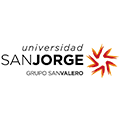1.- Deal efficiently with educational situations for early learners from a global perspective, encompassing the cognitive, emotional, motor, linguistic and self-control dimensions. (Global perspective).
2.- Create learning environments which are conducive to empathy, social behaviour, autonomy, and the co-existence of many cultures, while systematically observing the social, family and school envirnoment. (contextual and socio-natural perspective).
3.- Design, apply and assess teaching activities which are geared towards developing children´s physical, cognitive, social/affective, motor and linguistic abilities, bearing in mind the biological, psychological, social and creative elements which condition learning (early learning and fun learning perspective).
4.- Design strategies based on co-ordinated work carried out by different professionals in order to guide families in issues related to the development and education of 0- to 6-year-olds. (co-ordination with other professionals and family guidance perspective)
5.- Detect possible difficulties which pupils may have and design teaching and curricular adaptation strategies which take into consideration pupil diversity, to enhance children´s educational and social inclusion. (diversity awareness perspective)
6.-Design teaching practices which help school-goers understand the concepts of space and time. (time-space perspective)
7.- Design and draw up educational approaches for communication and expression, with strategies which include gestures and visual-verbal strategies. (about basic and instrumental learning)
8.- Make an appropriate use of the New Technologies as a vehicle for information, communication and an introduction into the world of mass-media (about New Technologies)
9.- Use different languages to promote and develop creativity (about creativity)
10.- Design experiments to get to know the natural world by means of sensorial perception. (about sensorial and experimental development)


